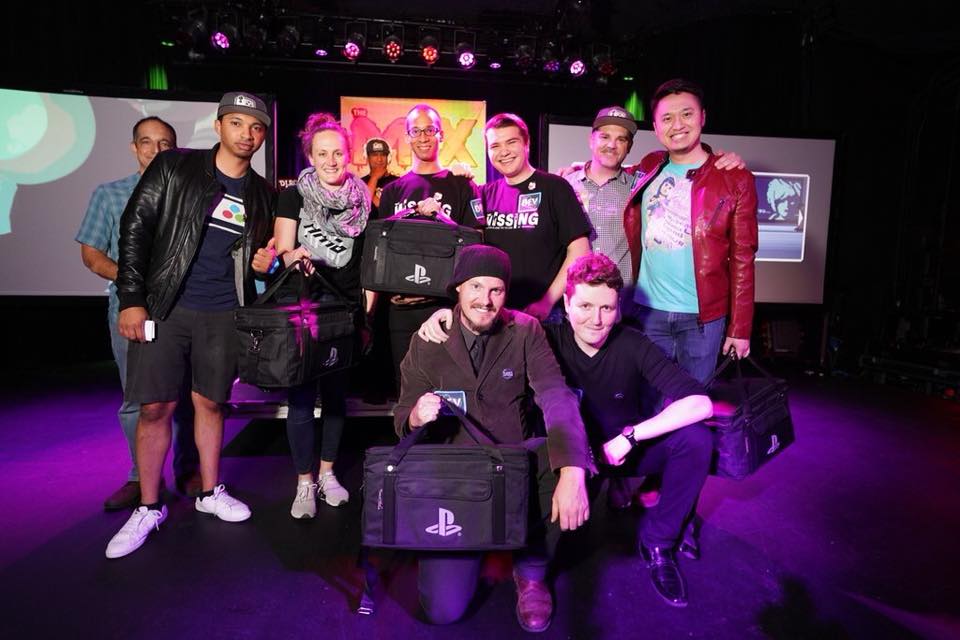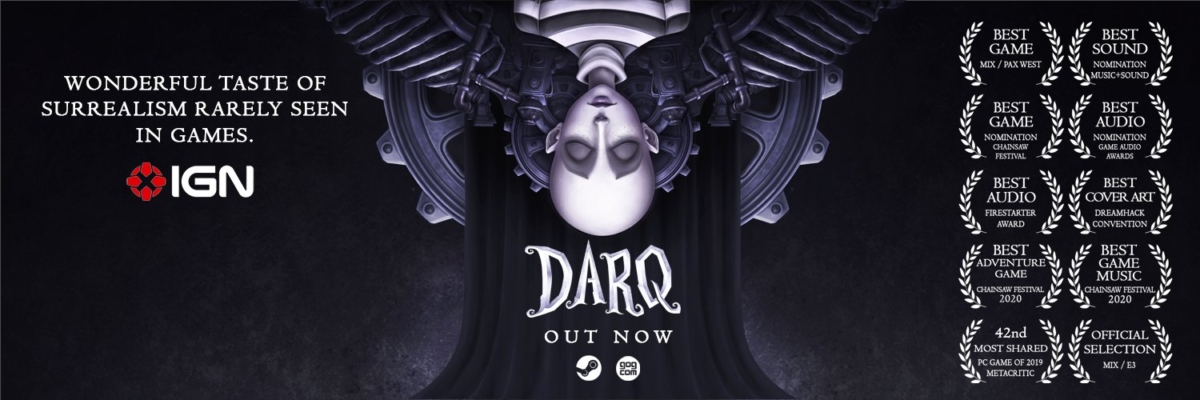Talent vs. Sweat-Equity
The role that talent plays in every success story is usually grossly overestimated. When people display a high level of skill in some area, it’s generally assumed that they were born under a lucky star. This couldn’t be further from the truth. Success is just the tip of the iceberg. Achieving a goal is merely a short moment of reaping the rewards of incredible sacrifices and thousands of hours of hard work behind the scenes.

You may hear my story and think, of course, your game turned out well—you’re talented. But DARQ didn’t always look and play the way it does now. I wasn’t born knowing how to code, make 3D models, texture, draw, write music, understand business or marketing. My Twitter feed (@UnfoldGames) goes back to the early stages of DARQ’s development. At first, my skills were poor, and not many people cared about what I was posting.
Talent is not the sole factor that will determine your success, but it certainly is a factor. So, what exactly is talent? I define talent as a multiplier of work. For example, if you’re born with an artistic inclination, you’re likely to learn art-related skills at a faster rate. Needless to say, hard work still needs to be applied for it to happen. But a person with less talent can achieve better results if they simply put in more work. It happens all the time, not just in the video game industry. It’s not talent that determines who gets to be at the top of their field. It’s the desire to get there that makes the select few outwork everybody else. When going for something big, be ready to work hard, whether you’re talented or not.
I spent over ten thousand hours developing the skills required to make my game successful. I’m curious to see what results you can produce if you give it all you’ve got. Don’t risk your health and make sure to get adequate amounts of sleep and exercise, but do understand that it might take thousands of hours to learn new skills and ultimately to make your first game do well.

Developing games takes a lot of time, even for a triple-A studio with hundreds of employees. Time is a non-negotiable investment that you must make when starting on this journey. No matter how talented you are, you can make your first game do well if you put in enough sweat equity. To clarify, sweat equity is the investment of time and effort into a project. If you were born with many talents, use them to accelerate your learning. If you don’t particularly excel at anything, you can still learn to delegate tasks effectively and to focus on managing your team instead. Either way, you have no excuses for not pursuing your gamedev dream if it’s indeed something you want.
- If you want to keep an eye on more free gamedev tips & tricks, and behind-the-scenes of my development process, connect with me on Twitter.
- I have a gamedev book in which I share everything I’ve learned over the years while working on my first game DARQ (which became #42 Most Shared PC Game of 2019, according to Metacritic). If you’re looking to make a living making games and know very little about the subject, the book might be the right fit for you.


